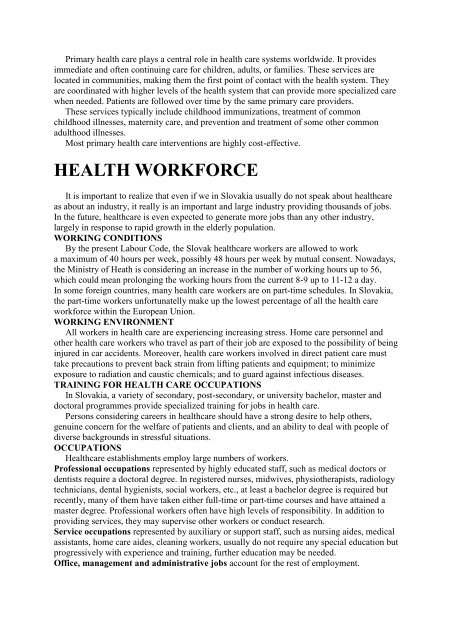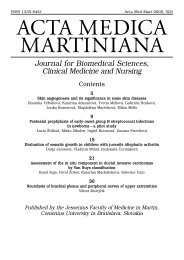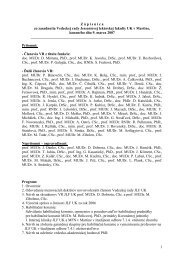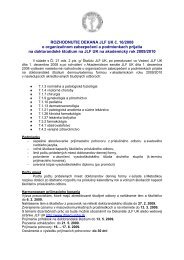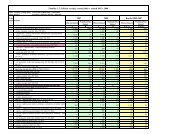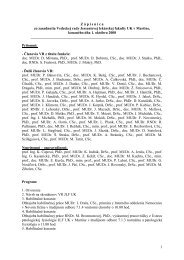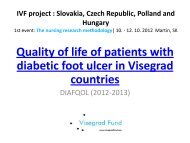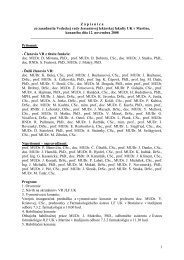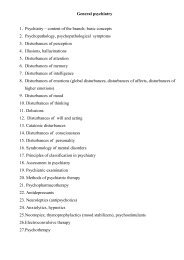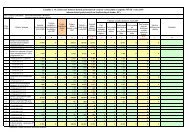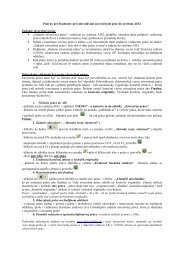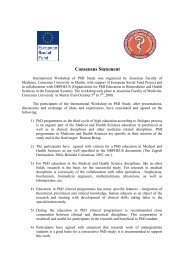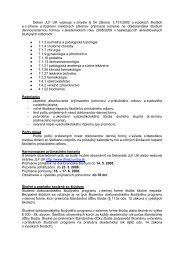health services
health services
health services
You also want an ePaper? Increase the reach of your titles
YUMPU automatically turns print PDFs into web optimized ePapers that Google loves.
Primary <strong>health</strong> care plays a central role in <strong>health</strong> care systems worldwide. It provides<br />
immediate and often continuing care for children, adults, or families. These <strong>services</strong> are<br />
located in communities, making them the first point of contact with the <strong>health</strong> system. They<br />
are coordinated with higher levels of the <strong>health</strong> system that can provide more specialized care<br />
when needed. Patients are followed over time by the same primary care providers.<br />
These <strong>services</strong> typically include childhood immunizations, treatment of common<br />
childhood illnesses, maternity care, and prevention and treatment of some other common<br />
adulthood illnesses.<br />
Most primary <strong>health</strong> care interventions are highly cost-effective.<br />
HEALTH WORKFORCE<br />
It is important to realize that even if we in Slovakia usually do not speak about <strong>health</strong>care<br />
as about an industry, it really is an important and large industry providing thousands of jobs.<br />
In the future, <strong>health</strong>care is even expected to generate more jobs than any other industry,<br />
largely in response to rapid growth in the elderly population.<br />
WORKING CONDITIONS<br />
By the present Labour Code, the Slovak <strong>health</strong>care workers are allowed to work<br />
a maximum of 40 hours per week, possibly 48 hours per week by mutual consent. Nowadays,<br />
the Ministry of Heath is considering an increase in the number of working hours up to 56,<br />
which could mean prolonging the working hours from the current 8-9 up to 11-12 a day.<br />
In some foreign countries, many <strong>health</strong> care workers are on part-time schedules. In Slovakia,<br />
the part-time workers unfortunatelly make up the lowest percentage of all the <strong>health</strong> care<br />
workforce within the European Union.<br />
WORKING ENVIRONMENT<br />
All workers in <strong>health</strong> care are experiencing increasing stress. Home care personnel and<br />
other <strong>health</strong> care workers who travel as part of their job are exposed to the possibility of being<br />
injured in car accidents. Moreover, <strong>health</strong> care workers involved in direct patient care must<br />
take precautions to prevent back strain from lifting patients and equipment; to minimize<br />
exposure to radiation and caustic chemicals; and to guard against infectious diseases.<br />
TRAINING FOR HEALTH CARE OCCUPATIONS<br />
In Slovakia, a variety of secondary, post-secondary, or university bachelor, master and<br />
doctoral programmes provide specialized training for jobs in <strong>health</strong> care.<br />
Persons considering careers in <strong>health</strong>care should have a strong desire to help others,<br />
genuine concern for the welfare of patients and clients, and an ability to deal with people of<br />
diverse backgrounds in stressful situations.<br />
OCCUPATIONS<br />
Healthcare establishments employ large numbers of workers.<br />
Professional occupations represented by highly educated staff, such as medical doctors or<br />
dentists require a doctoral degree. In registered nurses, midwives, physiotherapists, radiology<br />
technicians, dental hygienists, social workers, etc., at least a bachelor degree is required but<br />
recently, many of them have taken either full-time or part-time courses and have attained a<br />
master degree. Professional workers often have high levels of responsibility. In addition to<br />
providing <strong>services</strong>, they may supervise other workers or conduct research.<br />
Service occupations represented by auxiliary or support staff, such as nursing aides, medical<br />
assistants, home care aides, cleaning workers, usually do not require any special education but<br />
progressively with experience and training, further education may be needed.<br />
Office, management and administrative jobs account for the rest of employment.


